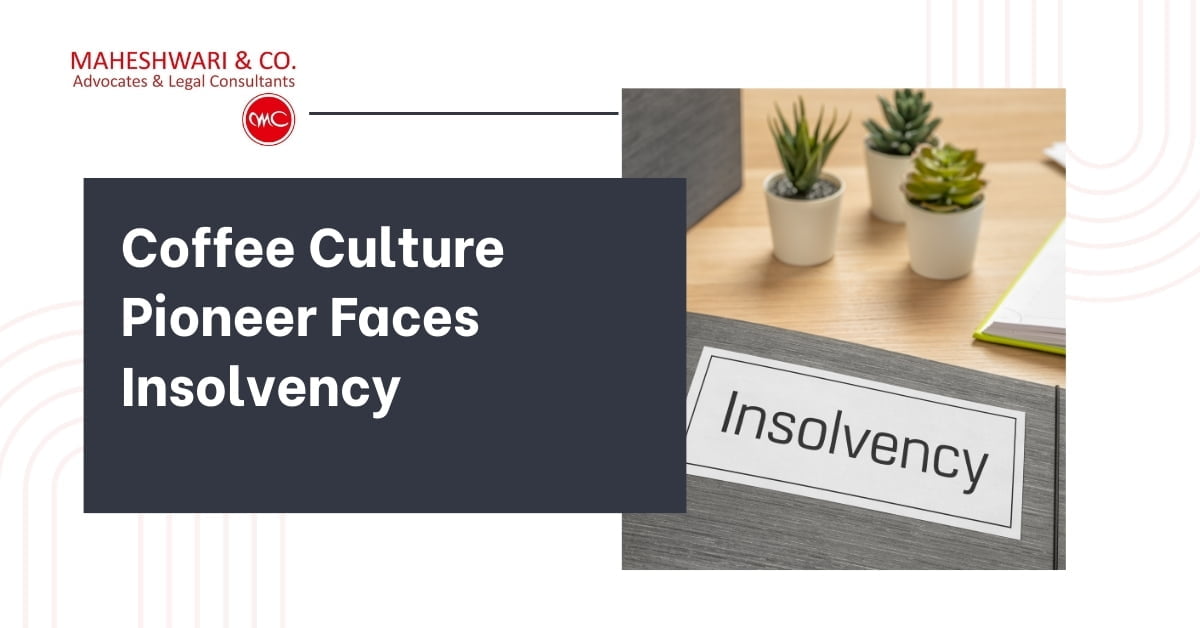
Coffee Day Global, the company that operates Cafe Coffee Day, has been admitted into the process of corporate insolvency by the Bengaluru Bench of the National Company Law Tribunal. In the previous week, the Tribunal issued an oral order wherein it approved the inclusion of the unlisted firm into the insolvency procedure. This decision came in response to a petition submitted by Indus Ind Bank. As of now, the Coffee Day Group has not released an official statement regarding this matter.
Coffee Day Global, a subsidiary of Coffee Day Enterprises and promoted by VG Siddhartha, faced significant financial turmoil, resulting in the tragic suicide of Siddhartha in 2019. In his suicide note addressed to the company’s board of directors and the Coffee Day family, Siddhartha disclosed his substantial debt burden.
The company’s latest annual report revealed that it owed Rs 67.3 crore to Indus Ind Bank as of March 31, 2022. The situation escalated to the extent that negotiations between Coffee Day Global and Indus Ind Bank collapsed, prompting the National Company Law Tribunal to admit the company for insolvency.
In a separate development, the Securities and Exchange Board of India (SEBI) took action against Coffee Day Enterprises in January 2023. SEBI imposed a penalty of Rs 26 crore on the company, citing the “diversion of funds from subsidiaries to a company related to promoters.” This pointed to a concerning situation where funds amounting to Rs 3,535 crore were redirected from seven subsidiaries of Coffee Day Enterprises to Mysore Amalgamated Coffee Estates Ltd (MACEL), a company linked to the promoters of CDEL.
The conglomerate comprises seven subsidiaries: Coffee Day Global, Tanglin Retail Reality Developments, Tanglin Developments, Giri Vidhyuth (India) Ltd, Coffee Day Hotels and Resorts, Coffee Day Trading, and Coffee Day Econ. This intricate network of subsidiaries played a role in the diversion of funds.
The misdirected funds, according to SEBI, ended up in the personal accounts of VG Siddhartha, his family members, and related individuals and entities. SEBI’s investigation shed light on how the diverted funds remained within this network.
SEBI’s directive encompassed a comprehensive approach. It urged Coffee Day Enterprises Ltd to undertake all necessary actions to recover the entire outstanding dues, along with due interest, from Mysore Amalgamated Coffee Estates Ltd (MACEL) and its associated entities. The regulatory body also called upon the company to work in conjunction with the National Stock Exchange (NSE) to appoint an independent law firm. This firm’s role would be pivotal in strategizing and executing effective measures to recover the outstanding dues.
The complex web of financial transactions and the misappropriation of funds highlight how important it is for corporate governance to be transparent, accountable, and subject to strict supervision. The dreadful series of events affecting Coffee Day Global and its affiliated organisations serves as a clear warning of the possible consequences of financial mismanagement, as well as the importance of protecting stakeholders’ interests. The regulatory actions taken by SEBI and NCLT emphasize once again how important legal procedures are in restoring financial integrity and guaranteeing adherence to established rules.
The saga of Coffee Day Global highlights the far-reaching ramifications of financial decisions and practices, affecting not only the company itself but also its stakeholders, investors, and the broader business ecosystem. As this case unfolds, it reinforces the significance of ethical financial conduct and responsible corporate governance in maintaining the integrity of businesses and safeguarding the interests of all involved parties.
Author – Pooja Singh (Senior Associate)






